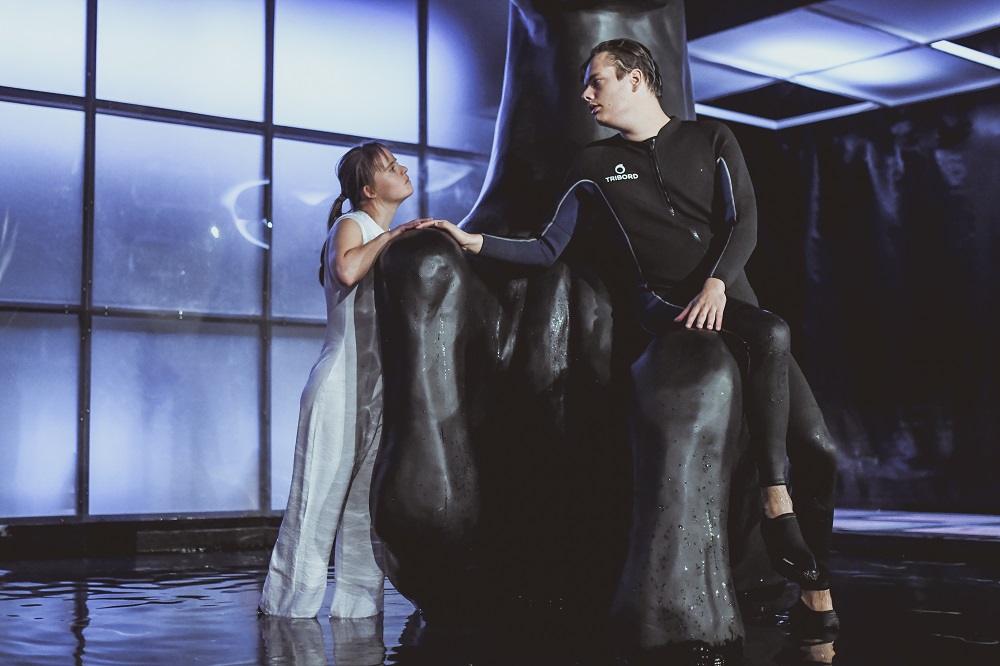Regional Express Directed by: Milan Peschel
(It Burns) Directed by: Jacob Höhne
nach Alban Berg Directed by: Jacob Höhne
oder Die Sprache der Blumen Directed by: Gisela Höhne
#createyourown Directed by: Sandra Rasch
Directed by: Jacob Höhne
Reason and irrationality are strictly separated in our system – a system that favors those who are “intact”, decisively take correct action, are well-mannered and successful, and feel at home in a capitalist economy. In fact, reason and irrationality are considered to be a threat to each other in such an environment. We live in a world that has been rationalized through and through, a world in which irrational people are always considered to be crazy. They are referred to as “crazy” because their irrationality shifts the perception of perfection onto a path that is undesired, to say the least.
Die Räuber and their leader, Karl Moor, are the “crazy” ones here – the irrational ones. More specifically, they are the ones who are sick and tired of partaking in the privilege, so to speak, of living in a pseudo-liberal, capitalist society of reason and rationality. The robbers thus indulge in wantonness, gluttony, slowness, and inefficiency. They represent an escalation of the punk culture and non-conformism. They will literally stop at nothing to be free and create a society that corresponds to their beliefs. The radical and inhuman means they are willing to use to achieve this end are similar to the methods employed by Karl’s brother, Franz Moor, who having been denied the love of his father his whole life has become a liar, a schemer, and a murderer.
DIE RÄUBER comes across as an attack against a world in which love and freedom may not be allowed to stand in the way of profit. The play juxtaposes two worlds. The first is the world of the “establishment” in the palace occupied by the Moor patriarch, his younger son (Franz), and Amalia, who both brothers are in love with. Amalia embodies the principles of love and emotion, which don’t stand a chance in the world she lives in. The other world is occupied by the “crazies”: the rebels and their leader, Karl, who have been robbed of their freedom but then become robbers themselves.
What follows is a battle, supposedly in the name of freedom, but it’s a battle driven by jealousy, loss, and hate. In the end, the only thing that remains is a decision to be made between freedom and death. Everything else is just silence.
The recommended age for audience members for this production is 16 years or older.

"So, wie Pascal Kunze die Kanaille Franz spielt, ist der ungeliebte kleine Bruder auf beklemmende Weise überzeugend: rührend linkisch und lügnerisch böse, besserwisserisch dozierend und übereifrig plappernd; ein Zerrissener mit einer Gestik, die zugleich fahrig und großspurig ist und nie zur Ruhe kommt. Wer diesen Theaterabend gesehen hat, dem wird es schwerfallen, sich Franz Moor jemals wieder anders vorzustellen." Frauke Adrians, nachtkritik